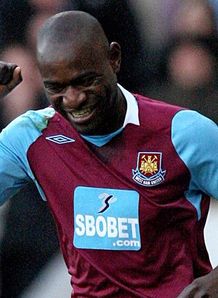 "What a team; what heart; what character; what spirit; what an attitude they've got." That was ITV's Jim Beglin last night after Fulham FC beat Hamburg to secure a place in the Europa League Final.
"What a team; what heart; what character; what spirit; what an attitude they've got." That was ITV's Jim Beglin last night after Fulham FC beat Hamburg to secure a place in the Europa League Final.It was one of those moments when being a sports fan seems so worthwhile, when a fairy tale does come true. And, it's just my good fortune that back in January 2009 I decided I'd become a Fulham fan after a match I'd bought tickets for was postponed on account of the weather. The club couldn't have been more helpful to me when I explained that I couldn't just turn up for the make-up game because I lived in Dublin.
I got tickets to another game in April '09 and we - my daughter, my son and I - had a great time in Fulham's ancient ground, Craven Cottage. Fulham won that day and finished last season in seventh place, which is, I believe, the best ever finish in the club's 131 year history.
That seventh place earned Fulham a place in the Europa League, which is a competition for those clubs that are just outside qualifying for the Champions League. Not the best of the best, but pretty far up there.
And last night, in front of 22,000 delirious fans, Fulham's remarkable run continued as they beat German club Hamburg for a place in the Final. This is their best ever accomplishment. The club's Clint Dempsey {photo} will, I think, be the first American to play in a European cup final when he takes to the field and joins the action (as a starter or sub) on May 12.
I'm not a fan of long-standing. I haven't endured the way Fulham's life-long fans have endured. Last night was those fans' greatest ever night in their little stadium's greatest ever night. I really enjoyed it, even though I felt and feel something of a fraud compared with those legitimate fans.
Years from now someone will ask a Fulham fan what was his greatest ever experience. Depending on the audience he may well say his wedding day or the day his son/daughter was born, but in his head he'll be recalling the feeling of that moment when the final whistle sounded and Fulham had beaten the longest odds and won the right to play in their first European cup final.
"Disbelieving joy" ITV's Peter Drury said, and that's exactly what it was for Fulham fans felt last night.
















